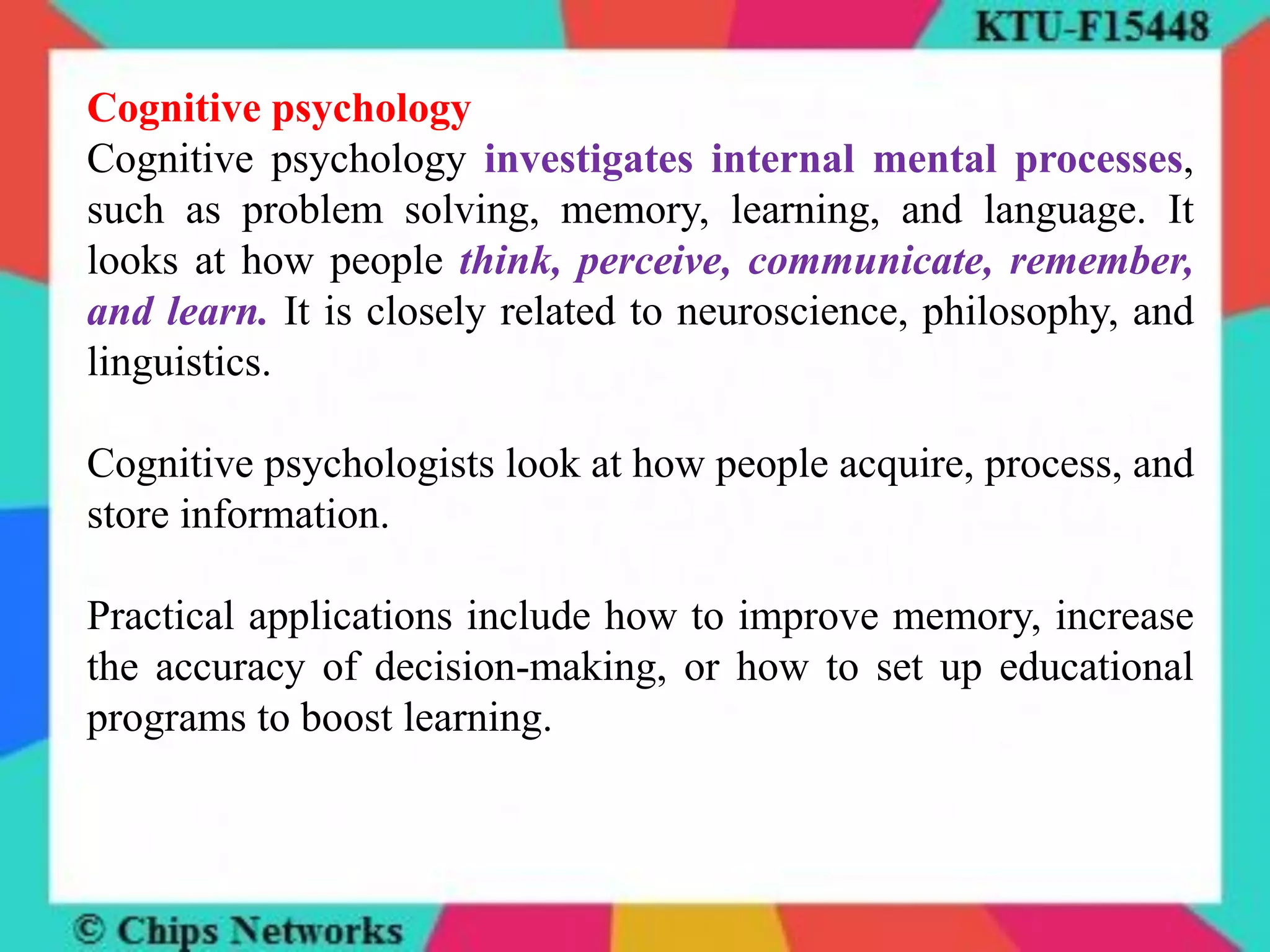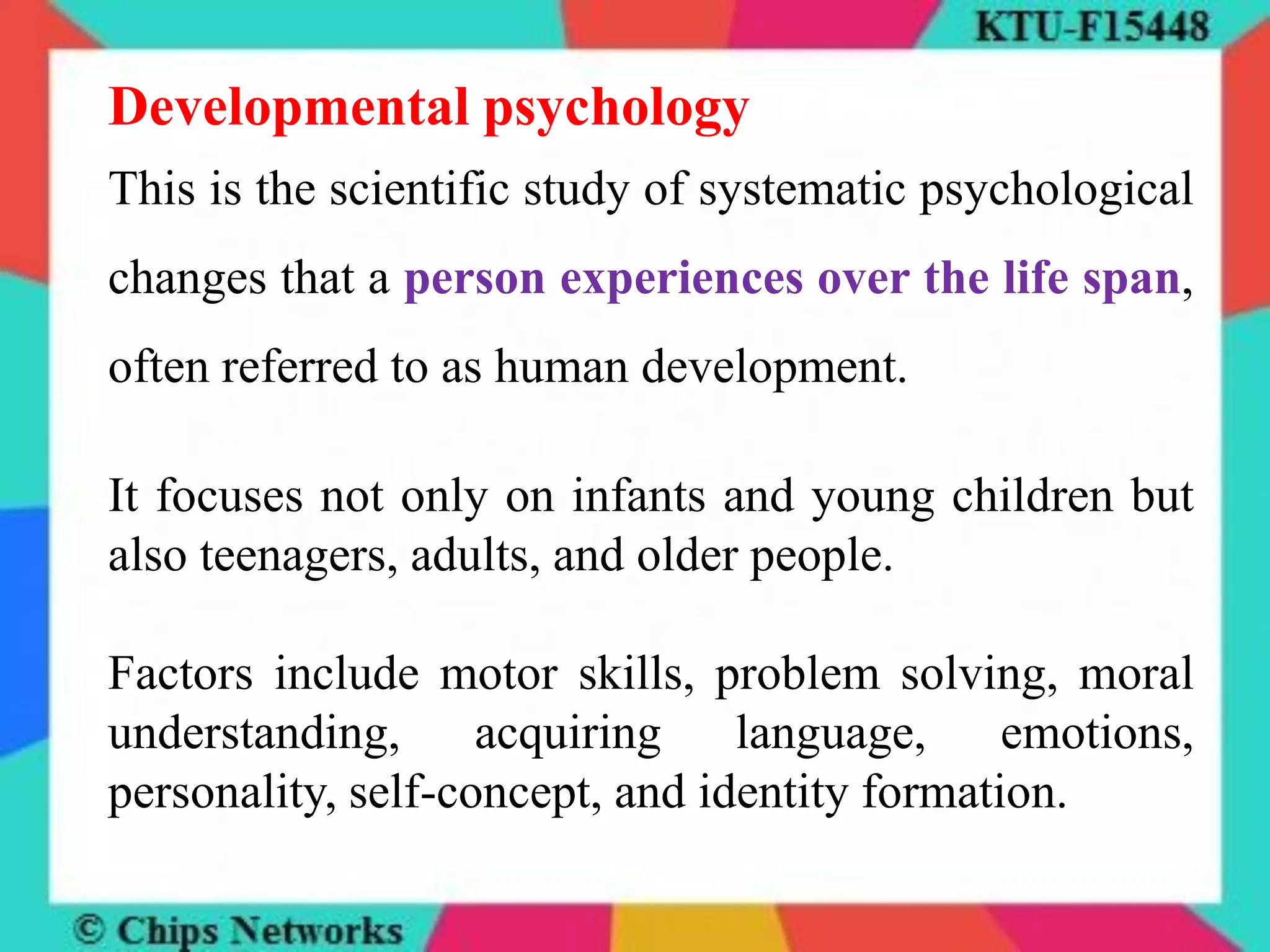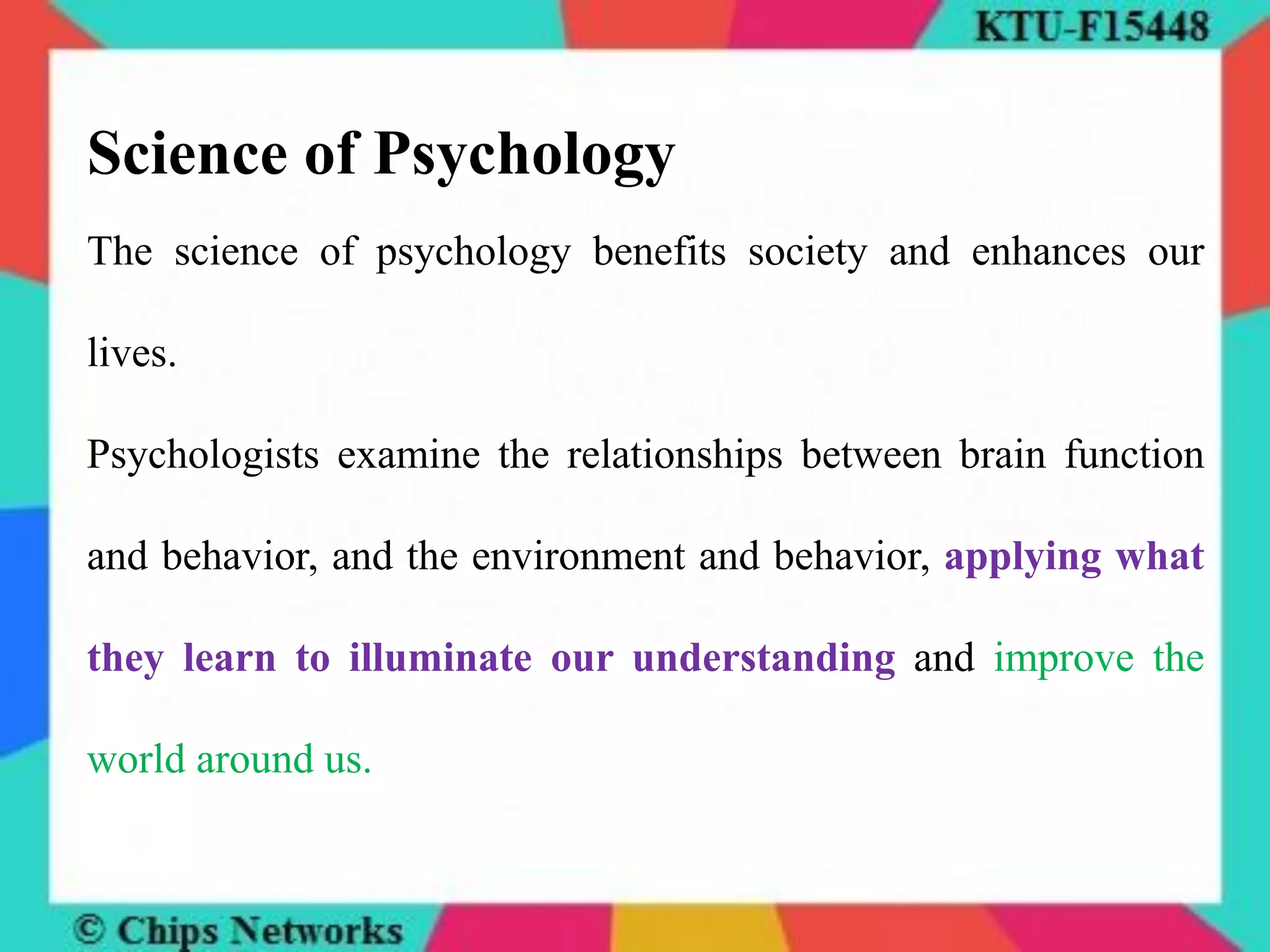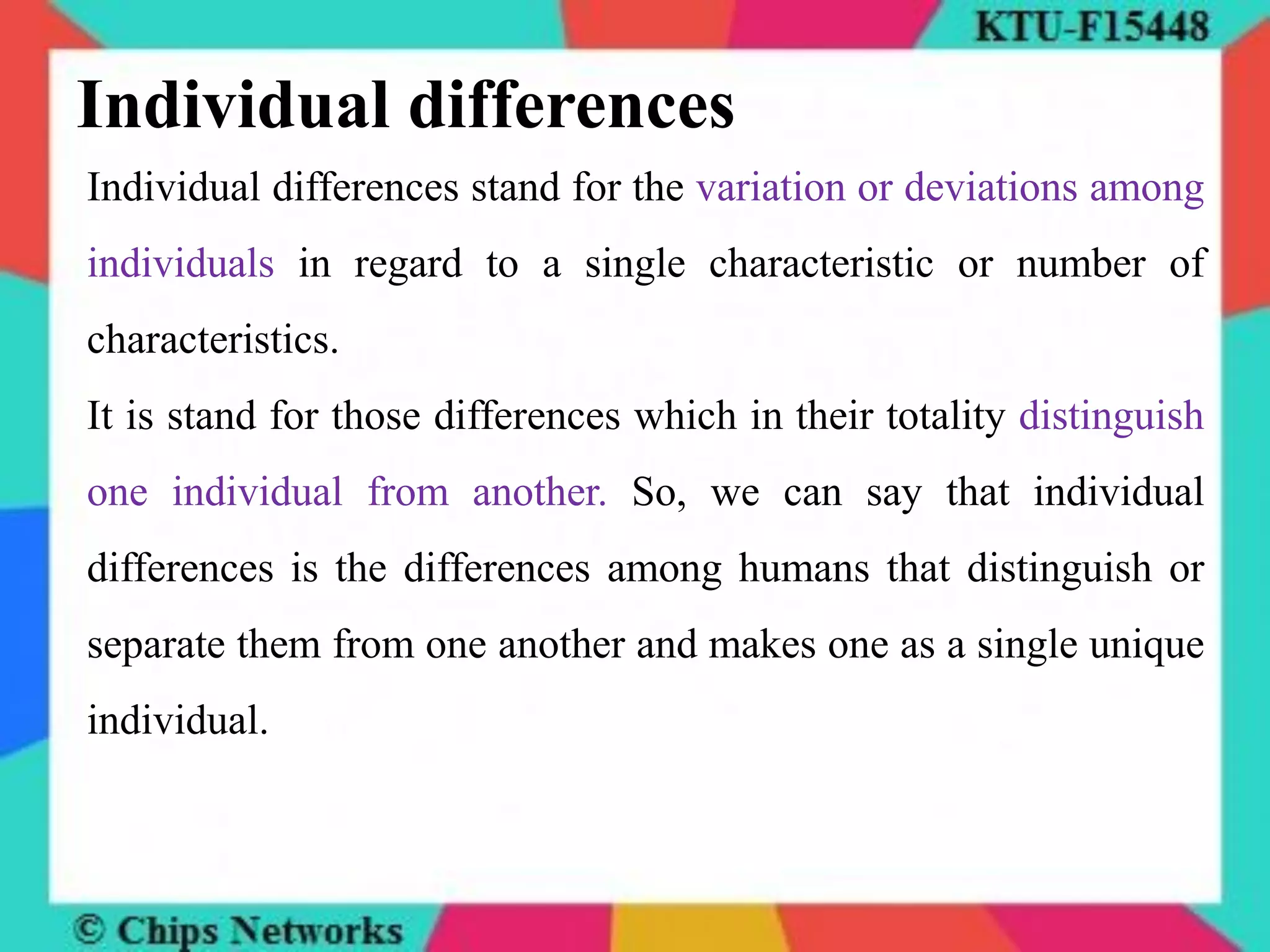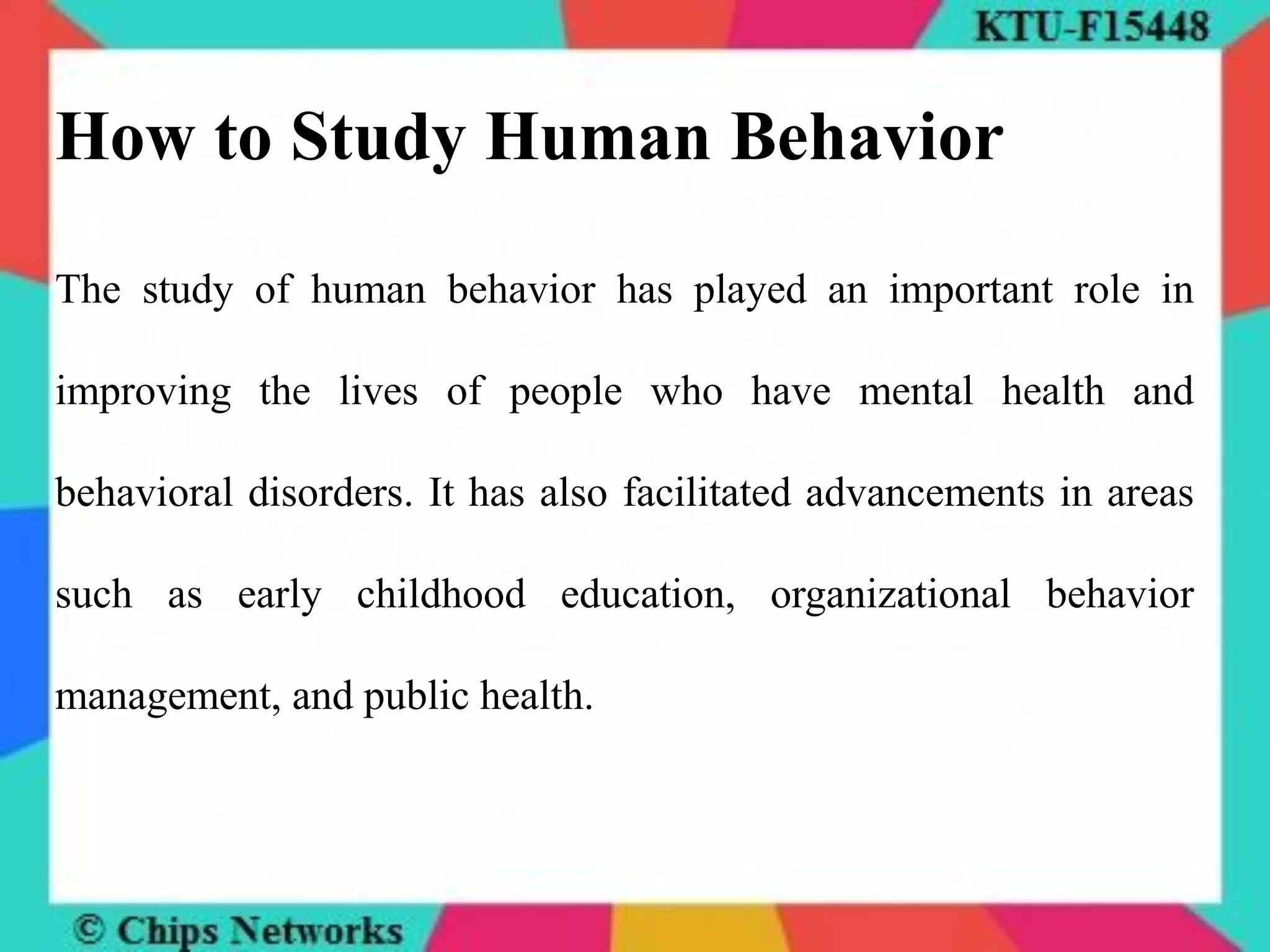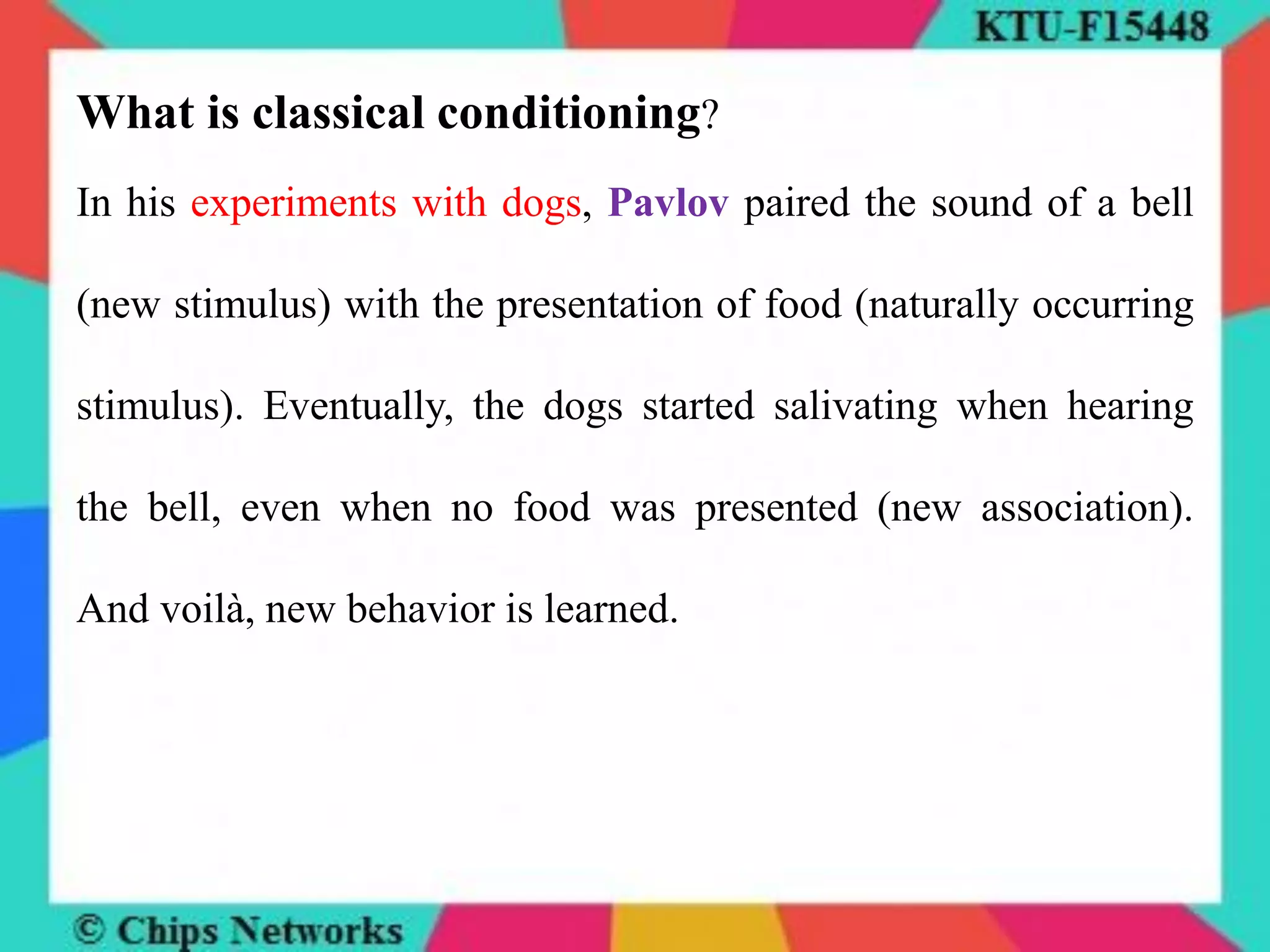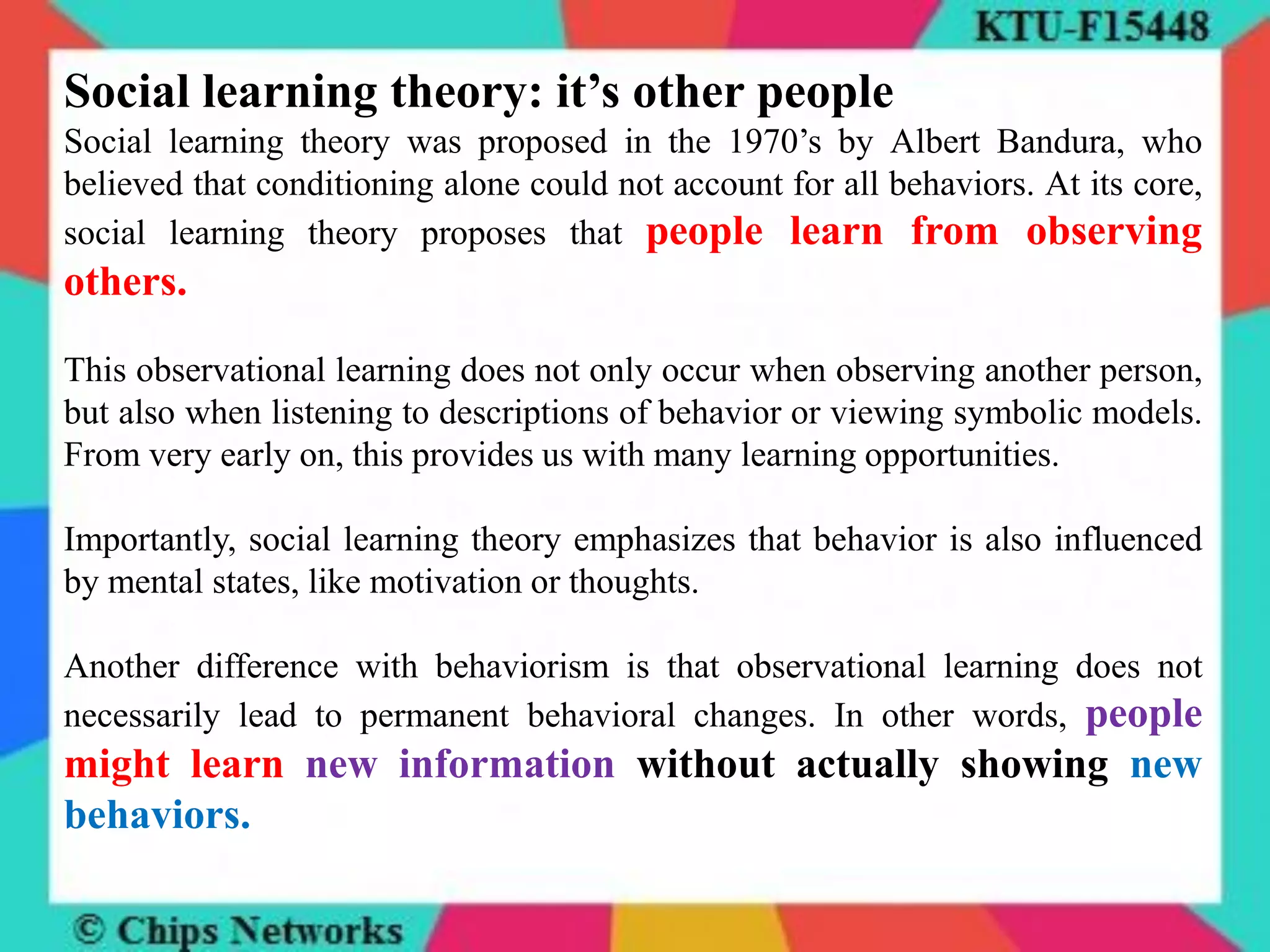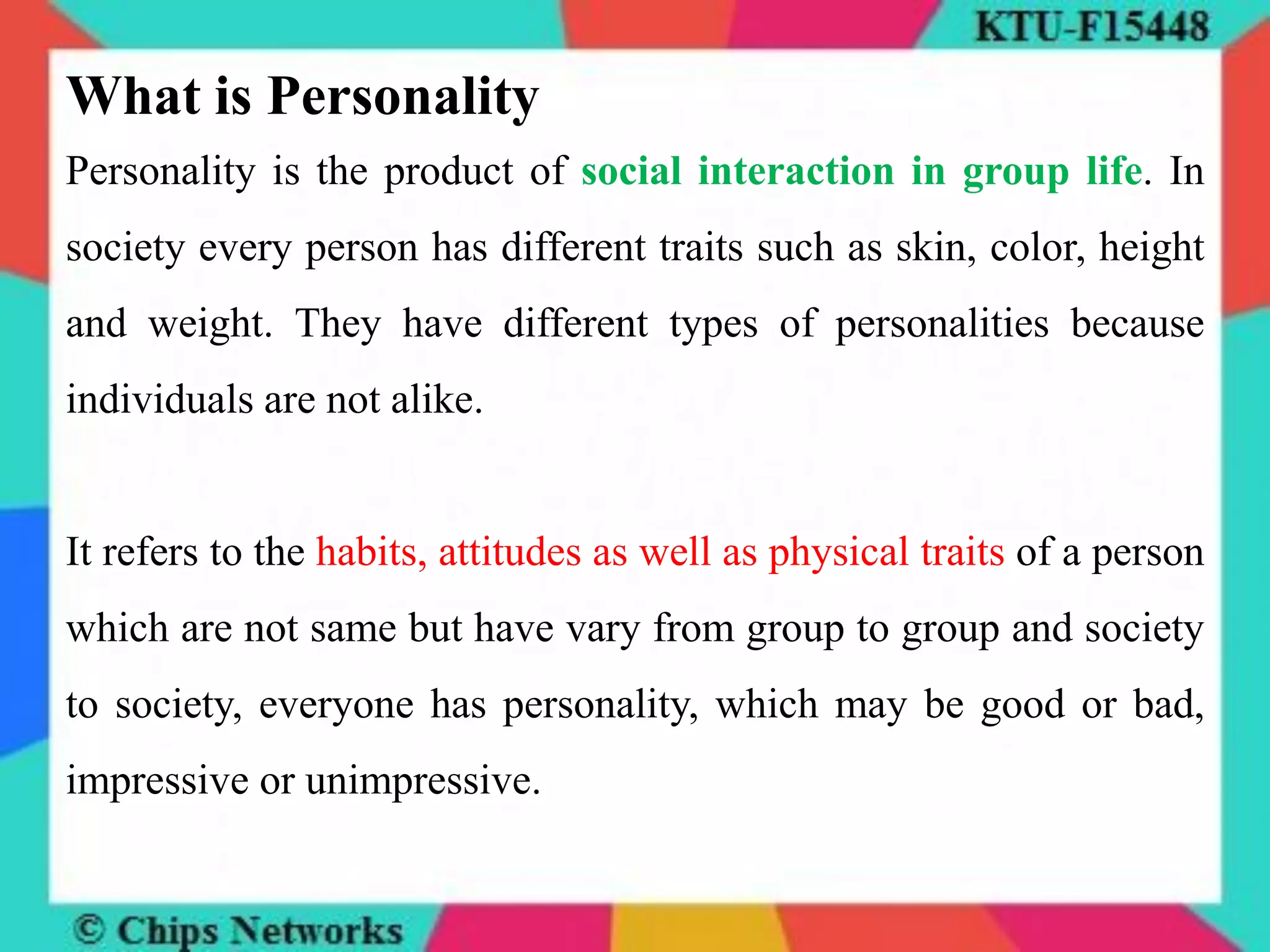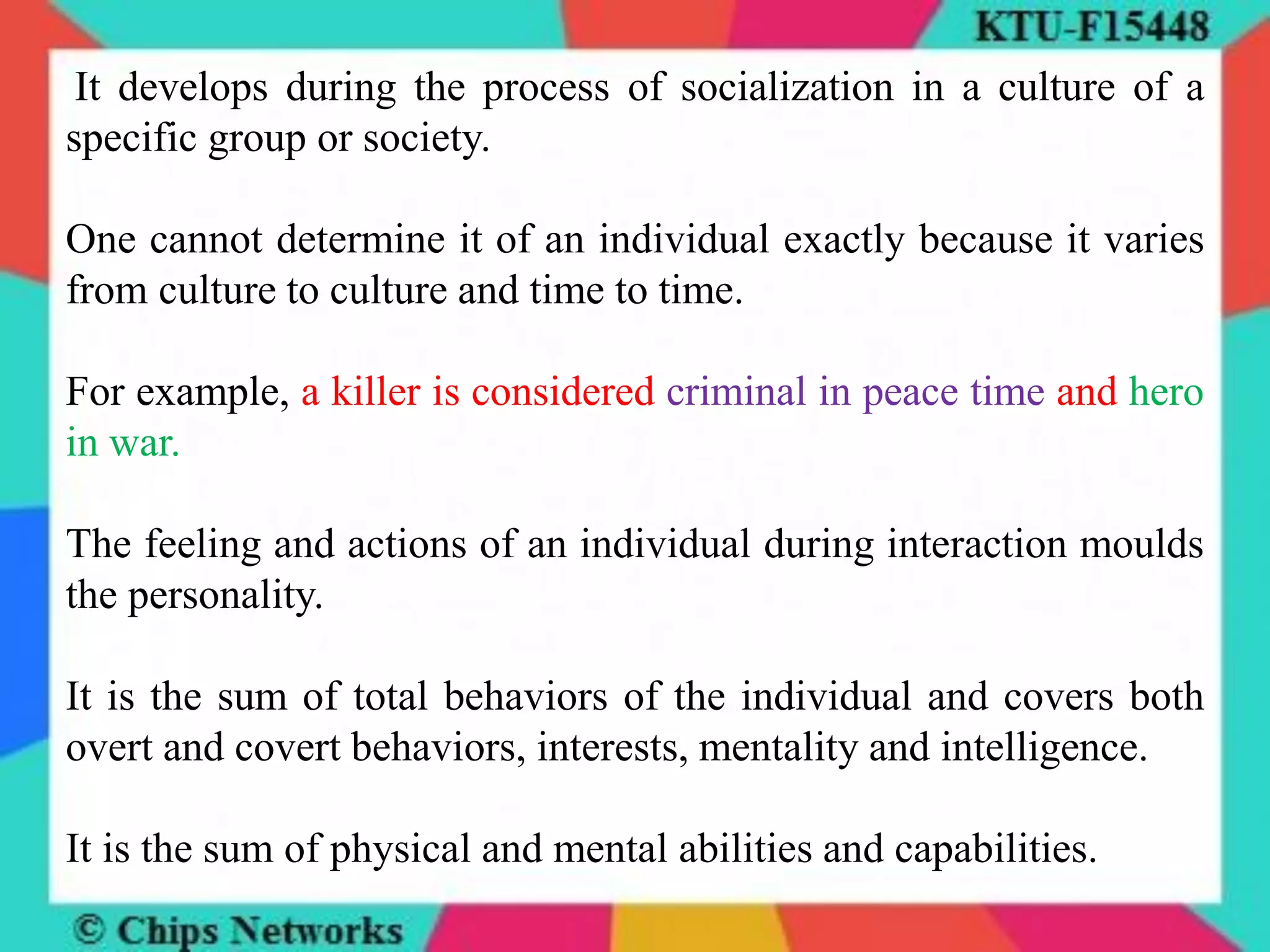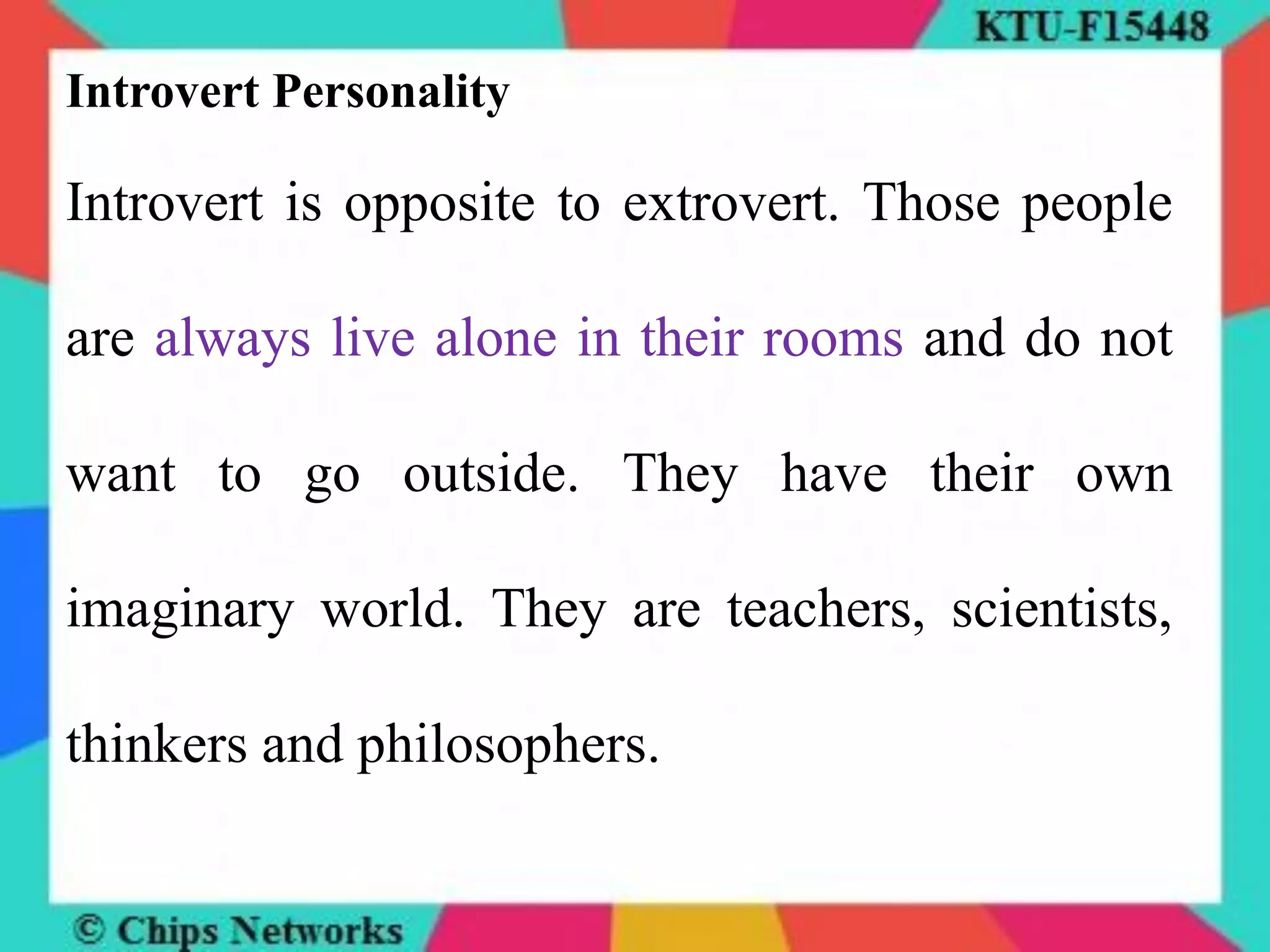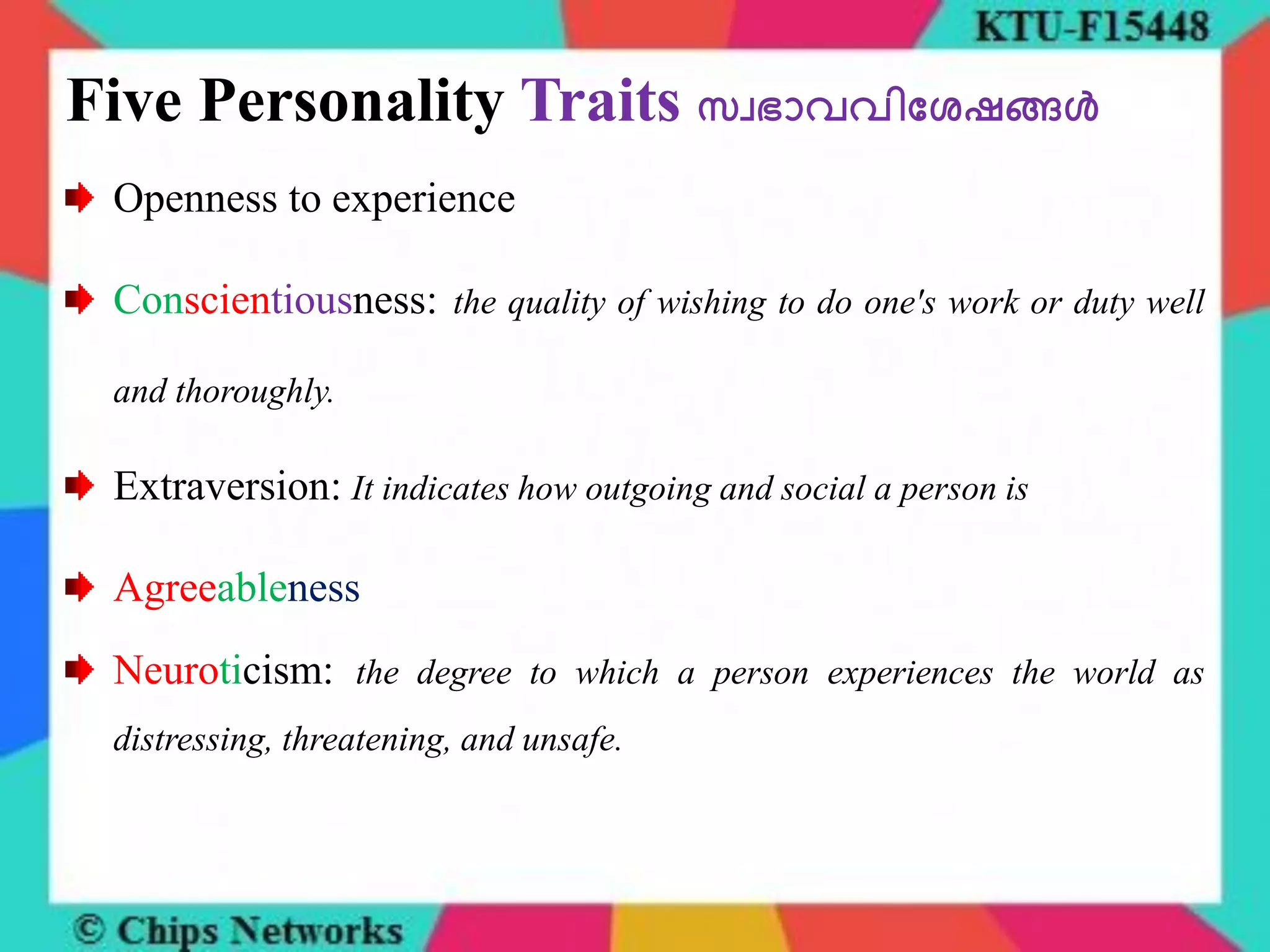Psychology is the scientific study of mind and behavior, encompassing various branches such as clinical, cognitive, developmental, forensic, health, and social psychology. Individual differences among people arise from hereditary and environmental factors, influencing traits such as interests, attitudes, and self-concept. The study of human behavior aids advancements in mental health, education, and organizational behavior, highlighting the importance of learning processes, personality types, and their development.





